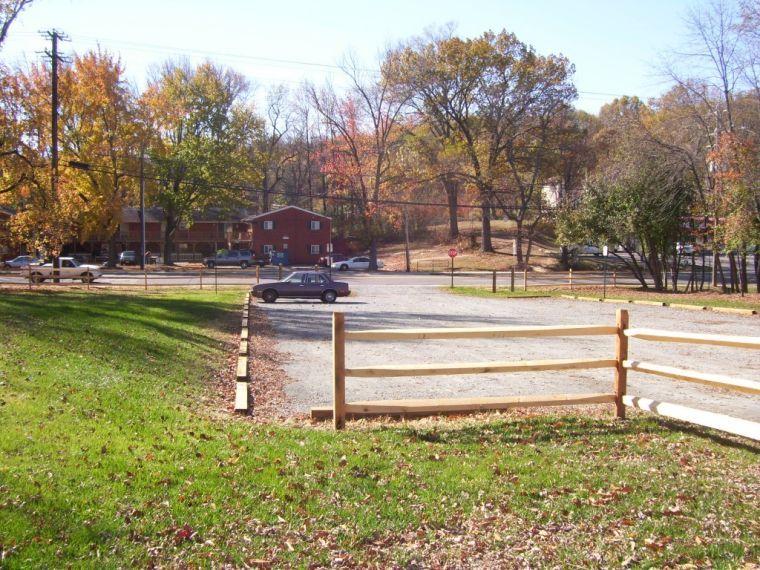Federal government awards pollution cleanup funding to Dublin, Dumfries
by Charlie Paullin, Virginia Mercury
Brownfields, previously disturbed lands that present environmental concerns but could be turned into future economic development projects, may soon be cleaned up and repurposed in some Virginia communities, following a fresh infusion of federal funds.
The U.S. Environmental Protection Agency awarded $1 million each to the towns of Dublin and Dumfries through the Multipurpose, Assessment and Cleanup Grant program, funded through the Bipartisan Infrastructure Law.
“This funding will help assess and clean up contamination, create jobs by returning idle properties to productive reuse, and continue our progress toward a healthy and safe environment for all Americans,” stated EPA Mid-Atlantic Regional Administrator Adam Ortiz.
The multipurpose grants allow localities to apply for the funding for several efforts, including those Ortiz mentioned, for one or more brownfields within their jurisdiction. The grants are part of the EPA’s brownfields program, which is similar to efforts to clean up Superfund sites that are deemed heavily polluted.
The Southwest Virginia located town of Dublin will use their allocation for assessments, community engagements, planning and cleanup activities for sites within the 271-acre Dublin Industrial Park that include legacy pollutants from its former user, the Radford Army Ammunition Plant, which makes rocket propellants and munitions for the U.S. Military.
Contaminants at the site include materials containing asbestos, lead paint and piping and Polychlorinated biphenyls, or PCBs. Within the park, the funds will focus on a former wastewater treatment plant, mixed-use and warehouse areas, and spots in the park set aside for future use.
“Most importantly, the revitalization project aims to convert this large tract of environmentally contaminated land into a community asset through assessment, remediation, and community-based reuse planning,” the application for the funding reads. Although the park has evolved to support the surrounding community over several decades, the application continues, “in its current state, it is a source of blight and potential contaminant exposure to residents.”
In Northern Virginia-based Dumfries, funding will be similarly used for assessment, community engagement, plans to reuse and clean up the Colonial Port Corridor, which includes a 3.5 acre site at 3800 Graham Park Road and the former 147-acre Campbell Salvage Yard.
Rather than targeting specific environmental issues with the funding, the town will use the money to assess what toxins may be in the corridor, beset by the growth of the tobacco industry that depleted their “seafaring economy,” according to the town’s application.
“While neighbors like Vienna, Fairfax and Manassas rank as some of the wealthiest localities in the U.S. today, Dumfries has not held an economic stronghold in the region since their Colonial Port was flourishing in the late 18th century,” the application reads.
Camrett Logistics, a current tenant at the Dublin Industrial Park, committed $1.5 million to $2 million towards adding jobs through building improvements and 58 jobs for assessment and redevelopment in the park’s warehouse area, stated EPA spokesperson Traci Benjamin. In Dumfries, where a recreation center is planned at the Graham Park Road location, new construction jobs are expected to emerge during redevelopment along with 100 long-term jobs.
The Virginia Department of Environmental Quality, Virginia Energy and Virginia Economic Development Partnership have brownfields programs, including a Virginia Brownfields Restoration and Economic Redevelopment Assistance Fund, which received $2.5 million in the state budget for both this year and next year.
This past legislative session, lawmakers passed and Republican Gov. Glenn Youngkin signed a bill from Sen. Travis Hackworth, R-Tazewell, and Del. Paul Krizek, D-Alexandria, to allow state funds to be used to incentivize solar development on brownfields, which can include former coal mines.
(Virginia Mercury is part of States Newsroom, a nonprofit news network supported by grants and a coalition of donors as a 501c(3) public charity. Virginia Mercury maintains editorial independence. Contact Editor Samantha Willis for questions: info@virginiamercury.com. Follow Virginia Mercury on Facebook and X.)


